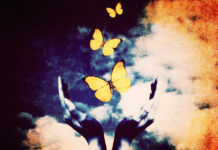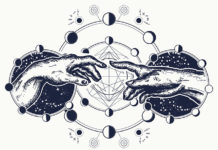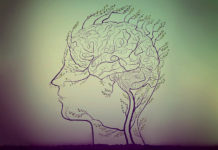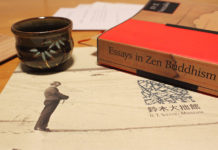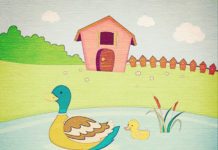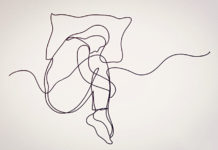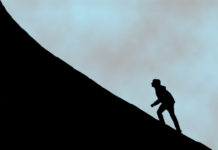A Healing Journey: Leaving Psychiatry Behind
The world calls what was "wrong" with me "bipolar." I prefer the notion that I went through a birth process to become the healer that I am today. I can't be silent because I know there are people like I was who are trapped and may not realize it yet. When they begin to see the prison bars that surround them, I want to be there for them as others were for me.
Fighting for the Freedom to Hear Voices
We were caught in a tug of war. They wanted my voices gone. I was not going to let go of my voices, my confidants and protectors, regardless of what they did to me. We have the right to hear voices and no longer be hidden away in the attic of taboo and misunderstood experiences. The freedom to hear voices is truly a fundamental human right.
I Was God: And You Were A Figment Of My Imagination
The drugs combined with my desire to know how life worked and what made a human broke down all past social conditioning of my individual self. I realized I was God. So was everyone else and I shared with anyone who would listen, but found no one who could understand or navigate the territory. There was little internet to speak of then and no Google to find others who experienced life as I was, so I voyaged on my own as best I could.
Catching My Breath After A Panicked Journey
$24,000 later and no one knew what was wrong with me. They sent me home with a bag of pills. After being in the hospital, I developed a fear and mistrust of doctors. My general practitioner suggested antidepressants. More pills. It was all they could recommend. I wouldn’t take them. My anxiety worsened. I was obsessed with the idea that if I slept, I would die. So, I stayed awake as much as I could. For an entire year, this was how I lived.
Healing From Schizophrenia
My experience is that living in a psychosis forces your brain to "stretch" — you develop extra capacity to handle things. I was pretty much living a normal life, even working some of the time, while having all of my psychotic problems. After the psychoses faded away, I no longer needed to fight monsters, but I still had that extra capacity left. After 11 periods of psychosis, my brain has never worked as well as it does now.
Searching for Zen and Finding a Cow
If I had a clinical problem, why was something as ancient and simple as meditation helping me? And if normal positive human habits could be so profoundly useful, why the heck was the field marketing pills and “clinical” coping mechanisms to me instead? This frustration helped me jump ship from the medical mindset and hop into the world of humanity.
My Polypharmacy Predicament
Ironically, my post-traumatic stress disorder no longer stems from the events that led to my hospitalizations, but from the maltreatment I received within the hospitals. Now, every time I take my medication late or miss a dose, I feel the unsettling presence of dissociation creeping in, the terrifying panic of losing my mental bearings and being rehospitalized.
Inhumane Medicine in Germany: A Dark Chapter Continued
Although I left Ueckermünde without the ability to speak, heavily traumatized and barely able to move, I managed to reclaim life after more than a decade. Today I am one of the few witnesses who survived the Hell of Ueckermünde, who can tell the story of my companions and raise awareness of the injustice committed against us as well as demand answers.
Hospitalized and Heading Toward Homelessness
Upon my release I was dumped at a motel with no ID, no money or method of payment, and not even a cell phone to call friends or family for help. My belongings were still locked in a safe back at the hospital. Where are the real advocates for more low-income housing, and where the hell have they been for those who are incarcerated, whether it be in jails and prisons or mental facilities?
The Forced Psychiatric Treatment of a Child
This is my story of forced psychiatric treatment as an eight-year-old girl, from my perspective as an adult mental health professional. Being held down kicking and screaming to be injected with a benzodiazepine is a human rights violation no child should endure for saying no to a pharmaceutical. In hindsight, when I reflect on that day, it feels like a form of child abuse.
My Ativan Affair and the Aftermath
My sincere message to those whose vitality and lives have been sapped and zapped by this iatrogenic dis-order: most of us DO recover! And even if it is not without some benzo remnants lodged in our cellular memory, what we learn about our own resilience will guide us to places in our lives we didn't expect to reach. HOPE was my key through the arduous path of withdrawal and recovery.
Recovery: Creating Your Personal Journey Through Self-Honesty, Resilience and Hope
Recovery is adapting to how your brain works. You accept how it works, observing what makes it worse or better, and learn to navigate the triggers and symptoms you experience. As you do things differently, these 'corrective experiences' begin to undo the negative beliefs you have internalized.
Benzo Withdrawal: Why Don’t Doctors Know?
Many have asked: “Why doesn’t my doctor/provider know what is happening to me?” Benzodiazepine tolerance and withdrawal are not new. So, why isn’t it simple to diagnose and treat? As both a health care provider and a withdrawal sufferer, I’d like to offer an inside and outside perspective on this question.
The Breaking Point
How did I become someone who could barely function? I was a high-performing sales executive ranked in the top 2% of an international business communications company. But now, after using powerful psych meds for depression and anxiety for more than a decade, I couldn’t do basic things like go to the grocery store, plan a meal, make dinner, or get together with friends.
Enjoying the Road Less Traveled
The people that my son and I continued to consult with over the years didn't talk of mental illness as a brain disease, a chemical imbalance, or a problem with one's genes. Depending on the therapy, they spoke in terms of restoring life force energy, changing cellular vibration, learning to listen and understand, and building a self.
Calm, Organized, Homicidal Behaviour – My Connection to School Shooters
There is little doubt in my mind that many school shooters were in an antidepressant-induced state of psychosis, which is a loss of contact with reality that makes it difficult to distinguish between what is real and what is not real. That's what happened to me. I started taking 60mg of Paxil a day. Three days later, I planned my suicide. Then I planned a murder.
When Facebook Sent the Cops to My Shelter
Somehow, something I had said in this “secret” Facebook group had been made known. And now, at almost midnight, a cop was banging at the door of the lady who had been keeping me safe in a secret place. How did a “secret” Facebook conversation bring the cops to an address I didn’t have to perform a suicide prevention “welfare check”? Here’s what their “safe” meant to my safety.
My Encounter with the University of Minnesota’s Psychiatric Department
The voice came to me for three nights in a row, and changed me at my core. I believe my voice was, and is, the voice of G-d, of love. But one devoted friend, an influential physician at the University of Minnesota, felt strongly that I had “lost it” and tried to persuade me to see his psychiatry buddy at the university.
Psychiatry Poured Oil Down the Hill I Was Climbing
I have nothing good to say about the psychiatric drugs prescribed to me or about the psychiatrists that prescribed them. I did not have a condition that needed to be medicated. There was no informed consent about the severe and indefinite damage that the drugs caused me, and I did not have the appropriate help withdrawing from them.
Psychiatry’s Failure to Acknowledge Who I Really Am
This is not how the mental health system should treat "psychotic" people. Mental health providers should treat them with compassion, empathy, respect, love and understanding. With a circle of loving and understanding people surrounding a person in crisis, I have no doubt that most "psychosis" would normalize in time.
Seeking Justice
My life flashed before my eyes as my entire medical history over the last decade was rewritten from having a genetic brain disease to being a victim of a medical scam. It was bittersweet, for I realized that I was not sick and dying, but I had been robbed of so many years of my life due to the psychiatrist’s lies. Now I am suing my former psychiatrist for damages.
I Almost Got Hit by a Lightning Bolt
I am so thankful that my brain healed from the damage caused by psychiatric medications. Most importantly, finding my purpose in life and living an authentic life helped to ground me and prevent further psychosis. Psychosis is the psyche’s cry for transformation and healing. When one listens to the call, one is brought from darkness to light.
Life Sentence: Life Behind the Bars of the Mental Health System
The minute you sit down in the chair in a mental health professional's office, you’re no longer seen as a person. The mental health system is incapable of seeing past the solid wall of your current label. Their only cure is drugs. "First Do No Harm" are powerful words. It’s unfortunate they don’t apply to psychiatry.
Subtle Ways Psychiatry Has Harmed Us
We’re not dysfunctional or bad just because there are two of us in here. What’s more important than being a socially acceptable single person is that we know how to get along and manage our trauma and our life together. We just need to be accepted as we are.
Letter From Israel
Here in Israel we are assigned to only one hospital according to our address — there is no freedom of choice. Why is the choice of psychiatric institution so important and urgent? Because conditions in psychiatric hospitals are often unbearable. We believe that if people have a right to choose, the worst hospitals will have to improve.

